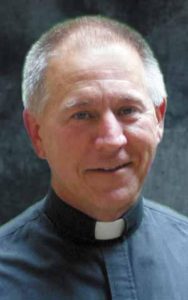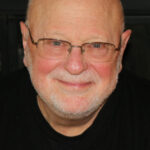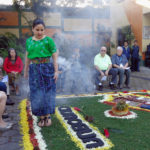By Fr. Bud Grant
President Trump’s recent executive order on “clean energy” (3.28.17) is getting serious push back: from New York to North Korea, and places as diverse as Qatar, Russia, Saudi Arabia, Laos, Japan, Brazil, Canada, France, the UK and the Maldives. When both California and China feel compelled to publish a refutation, you know it is serious. The U.S. military is caught between Scylla and Charybdis, at once recognizing that climate change is a matter of national security and is being told by the Commander in Chief to ignore it. One headline read “Trump may have signed Earth’s death warrant” (CNN).

Here is a summary of the order: “clean and safe” energy AND “avoiding regulatory burdens…” are equal priorities; an immediate review of all federal agency actions are to be completed and acted upon within 180 days; former President Obama’s acts addressing Climate Change are rescinded; all or parts of the Clean Power Plan are reviewed and “if appropriate, as soon as practicable … suspend, revise or rescind” them; review the cost analysis of Climate Change, disband the interagency group responsible for that analysis and withdraw their analysis; allow coal mining on federal land; review emission standards and oil/gas drilling rights; and to do all of this legally.
This seems benign, maybe even useful. The private clean energy sector easily demonstrates its contribution to economic growth. Coal, on the contrary, won’t bring back mining jobs (the industry has been automating for decades). So why the nearly universal outrage? First, because the president has made it very clear that his intent is to roll back decades of environmental protection. Secondly, because the men appointed to the agencies that oversee these reviews were selected on the basis of their antipathy for environmental protection. As with the so-called “travel ban,” it is not just the language of the executive order that matters. The rhetoric that preceded it must be factored into our judgment of its intent. This was, indeed, the basis of a federal court’s ruling to suspend the second “travel ban.”
The same strategy could be employed in reference to the president’s attempt to overturn environmental regulations. Incidentally, one oddity of many of the president’s top agenda items is that they are really unpopular. For example, 71 percent of Americans (about the same percentage that disapprove of the president’s job performance) think the U.S. should do more, not less, to protect the environment, even if it is costly. Sixteen states, the District of Columbia, Native American tribes and several environmental organizations have already filed lawsuits. Apple and Walmart have announced that they will maintain their pro-environment policies. Exxon Mobile, the fifth-largest oil company on earth, just announced its support of the Paris Accord.
The U.S. Conference of Catholic Bishops (USCCB), with its rich record of defending God’s creation, could draft an amicus brief, simply by re-issuing such statements as these (from “Renewing the Earth,” 1991): “At its core, the environmental crisis is a moral challenge. It calls us to examine how we use and share the goods of the earth, what we pass on to future generations, and how we live in harmony with God’s creation.” Deftly dodging politically polarized language, the bishops continue: “Opinions vary about the causes and the seriousness of environmental problems. Still … these important issues are being explored by scientists and they require urgent attention and action.… Our mistreatment of the natural world diminishes our own dignity and sacredness, not only because we are destroying resources that future generations of humans need, but because we are engaging in actions that contradict what it means to be human. Our tradition calls us to protect the life and dignity of the human person, and it is increasingly clear that this task cannot be separated from the care and defense of all creation.” Ultimately, they conclude, “Guided by the Spirit of God, the future of the earth lies in human hands.”
(Father Bud Grant is a professor of theology at St. Ambrose University in Davenport.)











